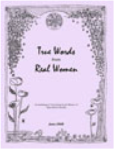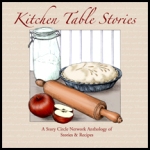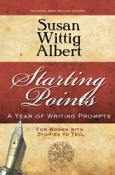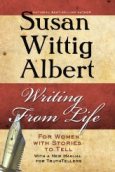by Sheila Bender
I encourage everyone to recognize how they feel comfortable writing and to recognize whatever that is as a valid journaling experience. I once had a retired male botany professor in a journaling class. He complained that he wasn’t disciplined enough as a writer now that he was retired and his wife made him escort her to the mall. I asked what he did there and he said, “I sit on a bench and watch people. I love to do that. I am used to being in the field and taking notes on what I see.”
“And what did you take notes on in the field?” I asked him. He answered that he used three-by-five note cards he kept in his breast pocket. I suggested that he put those cards in his pocket the next time he went to the mall. He came back to class with lots of journal entries.
We all have a discipline, but we think it doesn’t count. It does!
Often people think, “What if I don’t have anything important to write about on a given day?”
It’s not about writing what it is important. It’s about writing. If you allow yourself to write each day or several times a week, you are going to interest yourself at some point. It is hard not to find something of interest when you allow yourself to have some fun writing and don’t feel that you have to write about only “important” things or even make sense.
The best writing comes when we “tell it slant” as Emily Dickinson advised. Our emotional undercurrent is always there. When we don’t try to directly describe something emotional in our lives, but just describe what’s in front of us, our emotional view of the world comes out, making what we are saying interesting.
Just keep writing—that’s always the answer. Write about eating alone and eating with others, about being a stranger at a dinner table. Write about remembering how you learned to whistle or whose whistle meant something to you. Address a letter to an instrument you no longer play explaining what happened. Let the instrument write back to you.
Sit at your window and describe what you see, hear, taste, touch, and smell. Then, imagine someone walking into the scene with something to say to you. This works especially well if you imagine that someone to be a person who really can’t walk into the scene because they have died or are very far away or completely out of touch.
To write well we must always allow ourselves an element of play even when we are writing about difficult topics.
So three important keys to keeping a journal that interests you: recognize your discipline and work from that, tell thing slant trusting the meaning will rise from the images, and allow yourself to play with your writing. Then you will find that keeping yourself writing is not that hard at all.






I have never kept a journal, but at the SCN conference after the workshop with Len Leatherwood, I committed to writing every day for thirty days. Since I blog, I decided the way to do this is blog daily. As a result, I have some new followers and people commenting and all this is only after seven days.
Sheila, I especially like the idea of not worrying about writing something interesting, just sit down and write. This is a lesson have learned this year, and I wonder why I never did it before!
A wonderful post Sheila, so inspiring, but possibly even more important than even that is your focus on the very practical way to incorporate journaling into our daily lives so that it becomes something we actually do, instead of just talking about it or wishing it were so!
Sheila, nice piece! I especially like teasing out what our natural discipline is rather than lamenting we have none or laminating a discipline on us that just won’t stay stuck.
“Address a letter to an instrument you no longer play explaining what happened. Let the instrument write back to you.”
Nice one!
Janet
Thank you for the comment, Janet. It always means a lot to hear from a reader that the suggestions are helpful.
I’ve always hand written in my journal but of late also have a computer file where I write thoughts. I found as I was doing my daily writing work, ideas would pop into my head, or thoughts off topic to my writing. Having an open file while working gives me a place to just click over to and make some notes and return to my task. This “extra journal” has become a rich resource for me. Great post, thank you!
Sheila,
I love the openness that journaling provides and how you were able to encourage someone to use their own approach to keep one that was suitable to their needs. The simplicity of journaling makes it all the more profound; with just a bit of jotting, we can discover and learn more of Who We Are.
I will share a link to your post on the social networks and specifically on our #JournalChat Live for all things journaling Facebook Group, where we share information and have conversation. I will also share it in Refresh Journal and on my website.
I appreciate your emphasis on our preferences and approaches to keeping a journal our way. Helps us appreciate Who We Are all the more.
Be refreshed,
Dawn Herring
Thank you all for your comments and responses and the additional information you have supplied and shared. It is good to have this discussion about the tool of journaling and what helps to keep us committed to doing it.